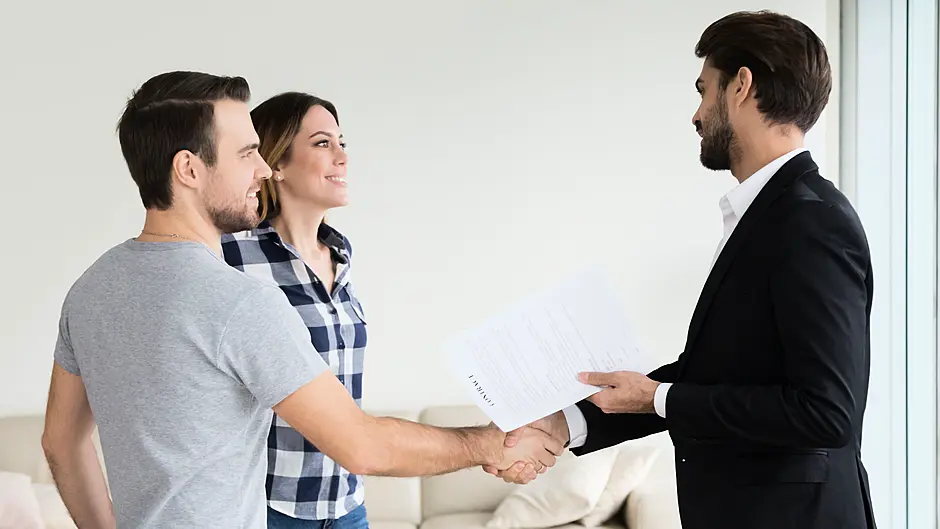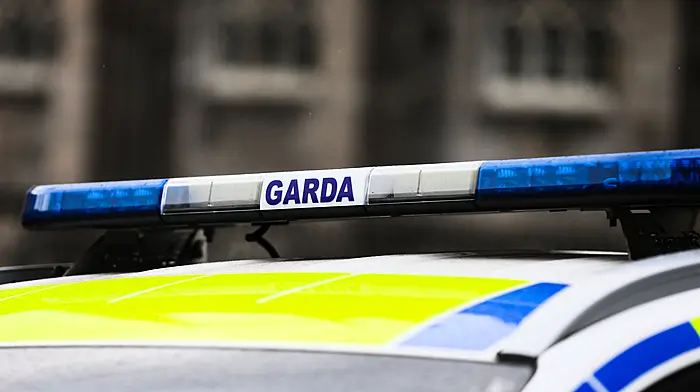IT can be difficult to find private rented accommodation. This time of year, with so many people beginning or returning to college, it’s even harder.
Most rooms, flats, apartments and houses to rent are advertised on accommodation websites. You can search for a particular type of accommodation and set up alerts for your specific requirements. You may also find rented accommodation to let in newspaper ads, in advertisements in shops, by word of mouth, or though social media pages dedicated to finding and renting accommodation. If you are a student you should also check on college notice boards and at your student union, many of whom keep accommodation lists.
To make sure you find somewhere that suits you, you should consider a few questions before viewing places to rent:
- How much can you afford in rent and bills?
- What is the standard of the accommodation?
- What is the Building Energy Rating (BER) of the property?
- What is the location of the property? Is it near to your work or college?
- How long do you plan to stay there?
- Do you want to share a bedroom, bathroom or kitchen?
Accommodation or letting agencies are commercial organisations that can help you find private rented accommodation, sometimes for a fee. Before registering with an agency, you should find out if the agency is licensed; what services it offers, and if you do pay a fee, in what circumstances will you get a refund? If you decide to register with the agency, make sure you get a receipt for any money you pay.
What should I do before I agree to rent somewhere?
Make sure that you can afford the rent being asked, either from your own income or with available State support, such as Housing Assistance Payment (HAP), Rent Supplement, or the Rental Accommodation Scheme (RAS). If you will be claiming Rent Supplement or HAP, make sure that you know the local maximum rent level allowed. There is some flexibility in certain situations, allowing for higher rents to be covered.
Be aware of your rights and your obligations as a tenant and your landlord’s rights and obligations. For example, your landlord must provide you with a rent book and ensure that the accommodation meets certain minimum physical standards. They must also register the tenancy with the Residential Tenancies Board (RTB) every year.
If the landlord wants you to sign a fixed-term lease, don’t agree unless you are sure you want to stay for that length of time. If you leave before the end of a fixed-term lease, you may lose your deposit.
If you are renting a room in your landlord’s home, your tenancy is not covered by landlord and tenant legislation, but it is covered if you are renting a self-contained apartment or flat. Read more in our document on Sharing accommodation with your landlord.
At the start of a tenancy ask the landlord for a written list of all furnishings and appliances. You and the landlord should sign this list to show that you agree on the furnishings supplied and their condition. This will help to prevent disputes during your stay and when you are leaving. This list should be included in the rent book.
Make sure that you note any signs of damage by previous tenants. You could photograph or otherwise record the existing condition of the property including any damage to walls, furniture or appliances. If there are outstanding repairs, ask the landlord to state in writing that they will be completed.
What are the rules about deposits?
Some landlords or agents may ask you for a holding deposit when you decide to take the accommodation. This is a sum of money you pay to hold the property before you sign the lease and enter into a contract with the landlord. You should always get a written receipt for a holding deposit. Holding deposits are often not refundable if you don’t take up the accommodation.
You will be asked for a security deposit before moving into the accommodation. The landlord holds this deposit as security to cover any rent arrears, bills owing or damage beyond normal wear and tear at the end of the tenancy.
How much should I pay for a deposit?
You cannot be forced to make upfront payments of more than 2 month’s rent. This includes a deposit of a month’s rent and one month’s rent in advance. Students in student-specific tenancies can opt-out of this restriction and pay a larger upfront payment if they want.
Can I get help to pay a deposit?
If you are getting a social welfare payment and are unable to pay the deposit, the Department of Social Protection’s representative (formerly the Community Welfare Officer) may be able to help with paying a deposit under the Supplementary Welfare Allowance Scheme.
If you are in emergency homeless accommodation, your local authority may help with your deposit to get accommodation under the HAP scheme. You should contact the housing section of your local authority for further information on this.
Can I lose my deposit?
You should get a receipt for any deposit you pay. Your rent book should state how much of a deposit you paid. You may lose your deposit if:
• You leave without giving proper notice, or leave before the end of a fixed-term lease
• You cause damage to the accommodation beyond normal wear and tear
• You leave with bills or rent unpaid.
What are rental scams?
Rental scams are when someone tries to take money from you when you are trying to find somewhere to rent. For example, the person might claim they can’t show you accommodation they have advertised, then take your deposit and disappear.
When you are looking for a place to rent, you should be aware of rental scams and how to avoid them. Before you make any payment or agreement with your landlord you should always view the property in person and make sure you are happy with the tenancy terms and conditions.
Rental scams generally fall into one of the following 3 categories:
The scammer asks for a deposit but claims they can’t show you the property as they are out of the country
The scammer is living at the property, shows it to different people and asks for rent off each one. They then disappear with the money.
The process seems to go as normal, however, you are given fake keys and the scammer disappears
There are a number of things you can do to try and avoid being scammed. Inspect the property in person. Do not rely on online videos or photos when viewing a property. Take a picture of the landlord or letting agent’s ID where possible.
Use a secure payment method. Avoid making cash payments or transferring money directly to someone without verifying their identity and visiting the property. Get a receipt for any payments you make and avoid using unsecure payment methods like wire transfers or cryptocurrency.
Ask for a contract. Request a written contract, such as a tenancy or licence agreement. This will explain the terms and conditions of your tenancy.
Do your research. Be familiar with current rental prices in the area you want to rent. If something appears too good to be true, investigate further before making a payment.
Take your time. Don’t rush into making a decision. Scammers will often try to rush you, but it is important to take your time and do your research before making a decision.
Look for advice. If you are unsure about something and suspect it may be a scam, you can contact Threshold for advice.
What should I do if I’ve been scammed?
If you realise you’ve been scammed, you should contact your bank or credit card company immediately. If you have transferred money online or have given your bank details to someone, your bank can cancel your cards. If you have been charged already, you may be able to get the transaction reversed.
You should report the incident to your local Garda station. You should also report the scam to Threshold, who can help make other people aware of the scam. Threshold is a useful source of information and advice on landlord and tenant issues, Tel: 021 427 8848.
What to consider when viewing rented accommodation
Minimum standards apply to rented accommodation. You may find the following checklist helpful when viewing somewhere to rent.
- Are there any signs of dampness?
- Do the windows open?
- What security is available (such as window locks, burglar alarm)?
- Does it have a working smoke detector?
- Is there a fire alarm? Check fire evacuation procedures
- Who pays for the heating? What hours is it on, and who controls it?
- Is hot water available all or some of the time?
- Are the cooker and fridge clean and in working order?
- What sort of condition is the bathroom in?
- Do you have to share the bathroom? If so, with how many others?
- Is there storage for bicycles?
- Is there a bus route or other public transport nearby?
- Are there shops and other facilities nearby?
- Does the property have a parking space?
For further information call a member of the local Citizens Information Service in West Cork on 0818 07 8390. They will be happy to assist you and if necessary arrange an appointment for you. The offices are staffed from 10am-5pm from Monday to Thursday and on Friday from 10am-4pm. Alternatively you can email [email protected] or log on to www.citizensinformation.ie







